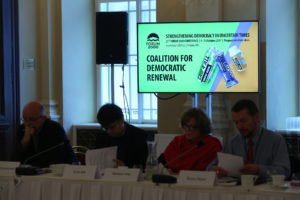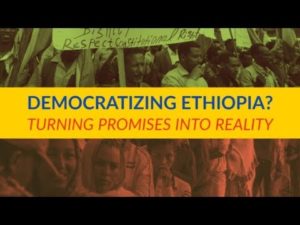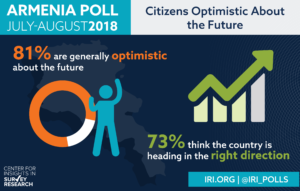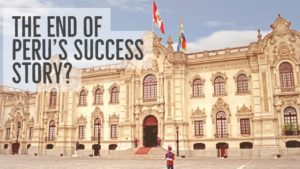
21st Forum 2000 Conference
By almost any measure, 2018 has been a disastrous year for democracy, notes analyst Frida Ghitis. Authoritarian leaders have made decisive moves to tighten their grip on power by eroding practices indispensable to a functioning democracy, such as the rule of law and a free press, and blithely ignoring or violently suppressing mass protests in places such as Hungary, Nicaragua, the Philippines and elsewhere, she writes for The Washington Post:
And yet, there are parts of the world where, quite unexpectedly, the struggle for democratic reform made giant strides — a reminder that the right mix of activism, leadership and circumstances can suddenly change the course of history. The good news came from starkly different countries, where undemocratic practices had been playing out in unique ways. Remarkably, whether toppling autocrats or reversing corrosive practices, the bold leaders and committed activists that shocked the system managed to achieve their goals without violence.
 Ethiopia was recently selected for the Millennium Challenge Corporation’s (MCC) threshold program, which aids countries to enhance eligibility for MCC financial assistance.
Ethiopia was recently selected for the Millennium Challenge Corporation’s (MCC) threshold program, which aids countries to enhance eligibility for MCC financial assistance.
“The MCC’s new focus on Ethiopia is a well-deserved acknowledgement of the progress Ethiopia has made in opening political space, advancing freedom of expression and promoting peace in the Horn of Africa region,” said Jon Temin, director of Africa Programs at Freedom House.
 In Armenia, a democratic revolution that no one noticed is taking place, reports suggest.
In Armenia, a democratic revolution that no one noticed is taking place, reports suggest.
Armenian citizens are showing widespread optimism about the country’s future and Prime Minister Nikol Pashinyan’s government, according to a recent poll from the International Republican Institute (IRI), a core institute of the National Endowment for Democracy.
Autocracies, alas, seldom die quietly. Yet in Armenia that is exactly what seems to have happened, The Economist notes:
The president, Serzh Sargsyan, tried to dodge term limits by making himself into an executive prime minister. The streets erupted in protest. Nikol Pashinyan, a charismatic and bearded former journalist and mp, was swept into power, legally and properly, on a wave of revulsion against corruption and incompetence. His new party alliance won 70% of the vote in a subsequent election. A Putinesque potentate was ejected, and no one was killed. Russia was given no excuse to interfere. A note of caution: Armenia’s nasty territorial dispute with Azerbaijan has not been resolved and could ignite again.
“However, an ancient and often misruled nation in a turbulent region has a chance of democracy and renewal,” it adds. “For that reason, Armenia is our country of the year.”
 Whereas Brazil and Mexico are plunging into populism, Ecuador and Peru are strengthening institutions, such as the judiciary, that can curb a headstrong leader, The Economist adds.
Whereas Brazil and Mexico are plunging into populism, Ecuador and Peru are strengthening institutions, such as the judiciary, that can curb a headstrong leader, The Economist adds.
These countries [Ethiopia, Armenia and Peru] and their leaders still face dangerous obstacles ahead along the path to a durable liberal democracy. Their experiments could still fail, Ghitis adds. But the very fact that they have managed to make meaningful democratic strides against such steep odds should give encouragement to those battling the forces of damaging corruption and creeping authoritarianism in other places. RTWT







